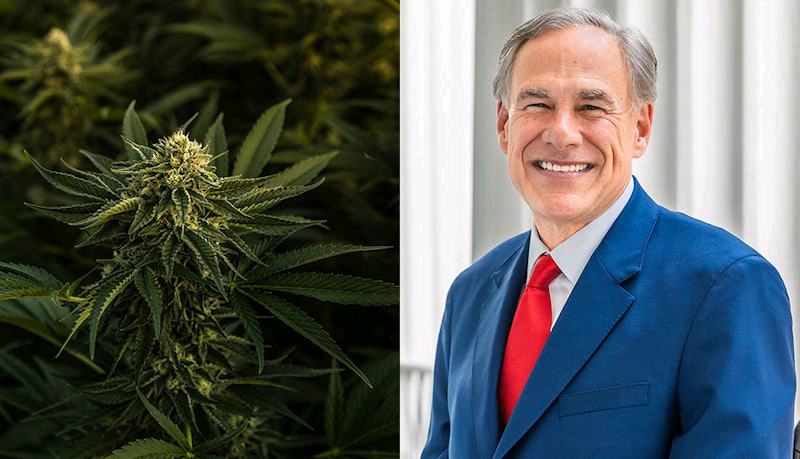

Lagos / Austin — Sept. 9, 2025. Texas Governor Greg Abbott ignited a fresh round of controversy after declaring on X that he had “signed laws that BAN Sharia Law and Sharia Compounds in Texas,” adding: “No business & no individual should fear fools like this.”
The Governor’s post followed a viral clip of an Islamic cleric urging Houston-area shopkeepers to avoid selling alcohol, pork, and lottery tickets. Abbott also told followers to report anyone “attempting to impose Sharia compliance” to law enforcement.
What Texas law actually says
Texas does not have a statute that singles out “Sharia.” The key law Abbott can point to is HB 45 (2017)—part of a wave of “foreign law” bills in U.S. states—which directs courts not to apply foreign law in family-law cases if doing so would violate federal or state constitutional rights. It does not name any religion. The measure took effect Sept. 1, 2017.
That nuance matters. Branding Texas as having a categorical, across-the-board “Sharia ban” overstates the law. Similar efforts that explicitly targeted Sharia have fared poorly in court. In Awad v. Ziriax (2012), the Tenth Circuit blocked Oklahoma’s constitutional amendment singling out Sharia, finding it discriminated among religions and likely violated the Establishment Clause; a federal court later struck it down.


The latest flashpoint: “Sharia cities” and EPIC City
Abbott has repeatedly posted that “Sharia law” and “Sharia cities” are “not allowed” in Texas—comments tied to EPIC City, a proposed Muslim-oriented development near Dallas that drew state scrutiny and, in May, a federal civil-rights probe into related issues.
Muslim advocacy groups blasted the Governor’s framing as “fearmongering,” noting that sharia for most Muslims refers to personal religious duties (prayer, fasting, charity) that are legal so long as they don’t conflict with public policy. They urged Abbott to meet with local communities.
The bigger picture: a long U.S. fight over “foreign law” bills
From 2010 onward, lawmakers in dozens of states introduced bills to restrict courts from using “foreign” or religious law; Texas was part of that trend in 2017. Researchers have catalogued more than 200 such proposals nationwide. Supporters present them as guardrails; critics say they stigmatize Muslims to solve a problem that scarcely exists in U.S. courts.
Facts, figures, and context
Texas demographics. Recent surveys show Texas remains majority Christian but is becoming more religiously diverse; Pew’s Religious Landscape Study estimates roughly 2% of Texas adults identify as Muslim (higher in some metros). Houston media have reported similar directional trends. Policy built on claims of widespread “Sharia courts” sits at odds with those numbers.
Courts already have tools. Even without HB 45, judges cannot enforce any private code—religious or otherwise—that violates constitutional rights or public policy (e.g., due process, equal protection). HB 45 reiterates that principle in family law.
Explicit “Sharia bans” face legal risk. The Oklahoma case is the clearest cautionary tale: singling out Islam failed constitutional scrutiny. Texas avoided that drafting pitfall in 2017 by using religion-neutral language.
What Abbott’s claim changes today (and what it doesn’t)
No new statewide prohibition took effect this week. Abbott’s viral phrasing points back to existing law (HB 45) and his administration’s posture toward “Sharia cities,” not a newly signed ban that names Sharia.
Enforcement would hinge on conduct, not creed. If an individual tries to coerce businesses or residents in ways that violate criminal or civil statutes, authorities already have tools. Peaceful advocacy—even for unpopular religious norms—is protected speech. (That’s why explicit, religion-targeted bans founder in court.)
Why the language matters
Calling advocates “fools” plays to a base that fears religious enclaves, but it also blurs critical distinctions: between personal religious practice and state-sanctioned law; between community planning and exclusion or coercion; and between neutral limits on foreign law and religion-specific bans. Precision is not pedantry here—it’s what separates talking points from policy that survives court review.
Editor’s Notes / Key Sources
Abbott’s Sept. 8–9 X posts asserting he “signed laws that BAN Sharia Law and Sharia Compounds…” and urging reports to DPS.
Texas HB 45 (2017): bars application of foreign law in family cases when it would violate constitutional rights; effective Sept. 1, 2017.
Awad v. Ziriax: courts blocked/struck down Oklahoma’s explicit anti-Sharia amendment as unconstitutional.
CAIR response / Houston Chronicle coverage, Sept. 9, 2025.
Legislative trendlines on “anti-Sharia/foreign law” bills nationwide.
Bottom line: Abbott’s rhetoric suggests a sweeping, religion-specific “ban,” but Texas law on the books is narrower, facially religion-neutral, and aimed at court use of foreign law in family cases. That difference matters legally—and for Texans who practice Islam without running afoul of state or federal law.
Headlinenews.news Special Investigative Report.




